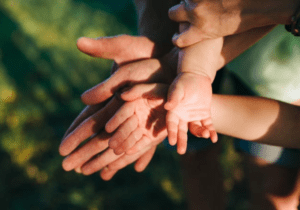Your Partner, Your Symptom ! A Different Way of Seeing Relationships
This article has been researched and written by Yassine Tayie. AI has not been used in producing this article.
This is an invitation to look at relationships from a different perspective, inspired by Jacques-Alain Miller’s thesis, “The Partner as a Symptom.”
Let’s start with a quick definition of a Symptom: In Lacanian psychoanalysis: the symptom isn’t simply a fault, but it’s the way the subject’s system holds together; it’s what organises their system. It’s the ugly duct tape on a leak: seeing it disturbs you but tear it off before you get to understand it’s role, and you flood the house.”
Which brings us to today’s theme: partner-as-symptom. Seen through this lens, what we call “dysfunctional” in a relationship may be precisely what sustains it. Your partner might often be your symptom, «your duct tape». What most irritates you is tied to what draws you in.
Example: you’re meticulous; you like everything tidy. Surprised, you fall for someone delightfully chaotic. At first it’s charming; Move in together and, suddenly, you’re arguing about where things belong — while still oddly glued to each other. A duct-tape fit, if you like.
How does this operate in a relationship? What do we unconsciously seek?
Individuals don’t enter love with what they have so much with what they lack. “To love is a wish to be loved” – in that sense, each of us seeks to be loved for our leak — the bit the duct tape covers — rather than the functioning facade.
A simple (cliché) vignette : Let’s see how that might operate in a relationship.
For an “X” reason, Person A is looking for a partner — a duct tape — with the following description: “ someone who can provide for me.” In love-terms : “If my partner provides, they love me — then I feel loved.”
For a “Y” reason, Person B is looking for a partner — yes, their duct tape — with the following description: “ someone to provide for.” Love-terms : “If I provide, my partner loves me — then I feel loved.”
Once upon a time in Dubai — Fate, Tinder, Cupid, take your pick — Person A meets Person B. Match made. It works as long as A keeps asking and B keeps providing. The circuit runs; both feel loved.
When the symptom shifts:
We might think it’s all sorted, but then comes the challenging part.
Life happens, A or B are evolving; their symptoms start shifting – A wants to be more independent; B doesn’t want to define their worth through providing to other. Then the squeaks, the leaks, and the slips start:
B : “Oh, you only love me because of what I have, not because of who I am.” “I’m a person, not a wallet with legs!”
A : “I don’t want an allowance; I want to feel held.” “You buy things so you don’t have to be here!”
Then the relationship keeps leaking, evolves, finds another set-up, reinvents itself to keep going, or breaks. And what happens when it breaks? Well, if neither of the two knows the “X” or the “Y” reason we stated earlier, then guilt, anxiety, and insecurities fill that void.
What we take from it ?
Here’s the strange beauty: even when relationships are difficult — or gloriously singular — they’re chances to learn about ourselves, our symptoms, our X’s (exes) and our Y’s (whys).
- This only confirms the truth of these phrases we often hear — «My other half», «My life», «My loved one». It’s less an attempt to possess the other (still illegal, by the way) and more a way of saying the partner mirrors and sets in motion parts of myself I don’t quite have a hold of.
I hope you enjoyed this as much as I did writing it — take it as a cheeky challenge to think differently, not a license to start calling your partner ‘ my symptom ’ instead of ‘ my love ’.”
Managing Depression During Social Isolation
The outbreak of the global coronavirus pandemic is stressful for many people. Since the World Health Organization (WHO) declared the COVID-19 outbreak a global pandemic, regions across the world have mandated quaran…
What are Cognitive Behavioral Therapists?
Cognitive behavioral therapy (CBT) is a common type of talk therapy (psychotherapy) that has been demonstrated effective for a range of mental health struggles including anxiety disorders, depression, substance abuse …
Managing COVID-19 – Related Anxiety
The recent increase of COVID-19 cases in Europe and in the rest of the world has seen a great increase of strong emotions, such as overwhelming fear and worry, in our community. Despite the fact that the infection has…
What to Expect at Your First Family Therapy Session
Are you feeling a bit nervous about your first family therapy session? It’s very common to feel a bit apprehensive before starting any type of therapy. Therapy involves sharing personal information and intimate detail…
What do you really know about ADHD?
ADHD, or attention deficit disorder, is a commonly known mental health disorder and can be easily described by teasing apart its acronym. Most of us have been made aware of the condition through social media, advertis…
Taking Your First Steps to Seeing a Therapist
More often than not, the first step people take towards overcoming their mental illnesses, is making the decision to talk to someone about it, whether it’s a friend or a professional. It doesn’t help that our cultural…
The Benefits of Family Therapy
Family plays an essential role in our emotional, spiritual, and intellectual lives. Over the past few decades, the nuclear family has evolved and changed. Despite these changes to what a particular family unit include…
- « Previous
- 1
- …
- 4
- 5
- 6








